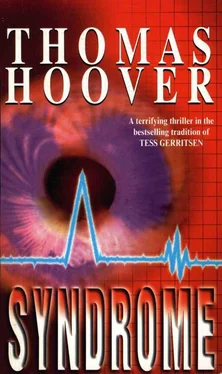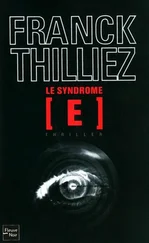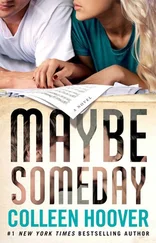Thomas Hoover - Syndrome
Здесь есть возможность читать онлайн «Thomas Hoover - Syndrome» весь текст электронной книги совершенно бесплатно (целиком полную версию без сокращений). В некоторых случаях можно слушать аудио, скачать через торрент в формате fb2 и присутствует краткое содержание. Жанр: Триллер, на английском языке. Описание произведения, (предисловие) а так же отзывы посетителей доступны на портале библиотеки ЛибКат.
- Название:Syndrome
- Автор:
- Жанр:
- Год:неизвестен
- ISBN:нет данных
- Рейтинг книги:4 / 5. Голосов: 1
-
Избранное:Добавить в избранное
- Отзывы:
-
Ваша оценка:
- 80
- 1
- 2
- 3
- 4
- 5
Syndrome: краткое содержание, описание и аннотация
Предлагаем к чтению аннотацию, описание, краткое содержание или предисловие (зависит от того, что написал сам автор книги «Syndrome»). Если вы не нашли необходимую информацию о книге — напишите в комментариях, мы постараемся отыскать её.
Syndrome — читать онлайн бесплатно полную книгу (весь текст) целиком
Ниже представлен текст книги, разбитый по страницам. Система сохранения места последней прочитанной страницы, позволяет с удобством читать онлайн бесплатно книгу «Syndrome», без необходимости каждый раз заново искать на чём Вы остановились. Поставьте закладку, и сможете в любой момент перейти на страницу, на которой закончили чтение.
Интервал:
Закладка:
Unfortunately, it had not.
Nina was sitting next to her now, in full makeup but completely unresponsive, seemingly in another world. When Ally arrived at the Riverside Drive apartment to pick her up, Maria-now silent and uneasy in the backseat, reading a Spanish novel-met her at the door with a troubled look and shook her head sadly.
"Miss Hampton, I know she was all right when you were here last night, but this morning … she may not recognize you. She'll most likely snap out of it and be okay later on, but right now she's just in a fog. It was all I could do to get her ready."
When Ally walked in, Nina was sitting in her favorite chair, dressed in her favorite black suit. Her makeup was perfect. Thank you, Maria.
"Hey, sweetie, you look great."
Nina stared at her as though trying to place the face and said nothing. She just looked confused and very, very sad.
Dear God , Ally thought, this is the first time she's completely failed to recognize me.
It was so disheartening. Last night, when Ally had come up to discuss whether or not she still wanted to explore Dr. Van de Vliet's experimental treatment, Nina had been completely cognizant. Ally had tried to explain the concept of neural tissue regeneration using stem cells, which was difficult since she barely understood it herself.
"Mom," she had said "this might be something that could reverse some of the damage to your… memory. At least keep it from getting worse. I know it sounds scary but everybody says the conventional treatments for what you have don't work very well or very long."
"Then let's go out there and talk to him, honey. Just come in the morning and take me. By then I'll probably forget everything you've said tonight."
How prescient, Ally thought sadly. Now Nina was just gazing blankly ahead, silent. Does she remember anything from last night?
For that matter, what was Nina thinking now? Was she conscious of the fact she was losing her mind? And what about the ultimate question: do we want to live longer merely to be alive, or do we want to stay alive in order to do things? To be or to do? In her mother's case, she knew it was the latter. Nina had always been full of life, ambition, and projects. Would she want to go on living if none of those things were possible? You never know for sure about other people, even your own mother, but Ally suspected she would rather not live to see that day.
Now, though, was she even aware it was coming?
Ally thought back about the first signs. Nina hadn't yet turned sixty-five when she abruptly started having trouble remembering little things. She began forgetting where she'd put items, and she gave up on remembering phone numbers and dates. Initially it had just seemed like a lot of "senior moments" run together, very puzzling.
But then it got worse. She'd always loved music, and she'd always played the piano. She loved Chopin, especially the nocturnes. By the time she was sixty-six, however, she was having trouble remembering the names of her favorite composers. She also completely gave up trying to play, either from memory or with the music. When getting dressed one day, she put on her blouse completely backwards. It was bad.
Ally had taken her to see four different specialists and they all had concluded that Nina Hampton suffered from what was known as familial early-onset Alzheimer's. It was caused by a mutated gene and was extremely rare, representing only some 5 percent of all Alzheimer's cases.
There were two major drugs currently on the market, Exelon and Reminyl, that could relieve some of the symptoms of Alzheimer's by boosting the action of the brain chemical acetylcholine. However, Nina had not yet declined to the stage where doctors would prescribe those drugs. To resort to them was an admission you were at endgame, since they usually were effective only for a few months.
So the Dorian Institute might well be a long shot worth taking. Frankly, what's to lose?
This morning, she knew, was going to be difficult. If Nina
wanted to stay and checked in, there would surely be a pile of paperwork. Ally had had the foresight to acquire power of attorney for her mother three months earlier, and she'd brought along that document in case it might be needed. And Maria, the wonderful, ultimate caregiver, was there to help. The real challenge, however, might well be trying to help Nina understand what was going on and participate in the decision. This was the moment every child dreads, when you have to face, really face, a parent's mortality.
As the green forests of northern New Jersey began to envelop them, she slipped a CD of Bach partitas for unaccompanied violin into the CD player. She had loved to play them all her life, but now Dr. Ekelman had urged her to put her violin into storage. Hearing the violin now reminded her of the other purpose of the trip, the treatment decision she needed to make for herself .
In that regard one of the things that kept running through her mind was what Stone Aimes had said about the Gerex Corporation instituting a news blackout simultaneously with a patient being mysteriously dropped from the trials. Those concurrent facts did not need to be ominous, but they also could use an explanation.
What was she going to do? Was Van de Vliet's stem cell procedure on her heart really worth the risk? She honestly didn't know. Even though the violin had temporarily been taken away from her, she had hopes she could gradually get it back. There were other ways to try to strengthen a dysfunctional heart.
Well, she thought, wait and hear him out.
From the George Washington Bridge she had taken I-4, which turned into I-208 and now the green forest held sway. It felt like she'd gone through a time warp, from the beginning of the twenty-first century to the end of the eighteenth. Then finally, as the second partita was ending, the icy-cold Greenwood Lake came into view. It was associated with those long Finger Lakes gouged out by glaciers.
Driving past remnants of the last Ice Age, she reflected on how insignificant humans are in the scheme of things. Suddenly she thought of Aldous Huxley's novel After Many a Summer Dies the Swan , about a wealthy madman who'd discovered a way to prolong life by eating the entrails of prehistoric fish. Maybe it was seeing the lake that made her flash on that.
She was now on Greenwood Lake Road, which passed around the west side, and there were numbers on several gated driveways as she passed along. She suspected the place would be somewhere along the middle of the lakeshore, and she was right.
After a few miles she came to a discreet sign announcing the Dorian Institute, and a large iron gate that protected a paved roadway leading into a forest of trees. That was it: just forest, no hint of a building, though she saw signs of some kind of industrial park farther down the road. When she drove up to the gate, she realized there was a video camera and a two-way intercom.
When she reached out of the window and pushed the talk button, she heard "Good morning." And then the gates parted in the middle and slid back.
They must be expecting us, she thought, and drove through.
The road was cobblestone, or rough paving brick. It wound among the trees for approximately half a mile and then widened.
There, framed by the lake in the background, was a magnificent three-story building with eight Doric columns across the front in perfect Greek Revival style. There were windows at ground level, but they were heavily curtained.
Built of red brick, the building probably dated from the late nineteenth century, and it looked every bit like an Ivy League dormitory.
"Miss Hampton, I don't like the feeling I'm getting about this place," Maria said quietly. "It is very cold and formal from the outside, but inside I sense a place where there is bad magic. In the Dominican Republic, we call it Santeria. I can always tell these things."
Читать дальшеИнтервал:
Закладка:
Похожие книги на «Syndrome»
Представляем Вашему вниманию похожие книги на «Syndrome» списком для выбора. Мы отобрали схожую по названию и смыслу литературу в надежде предоставить читателям больше вариантов отыскать новые, интересные, ещё непрочитанные произведения.
Обсуждение, отзывы о книге «Syndrome» и просто собственные мнения читателей. Оставьте ваши комментарии, напишите, что Вы думаете о произведении, его смысле или главных героях. Укажите что конкретно понравилось, а что нет, и почему Вы так считаете.












